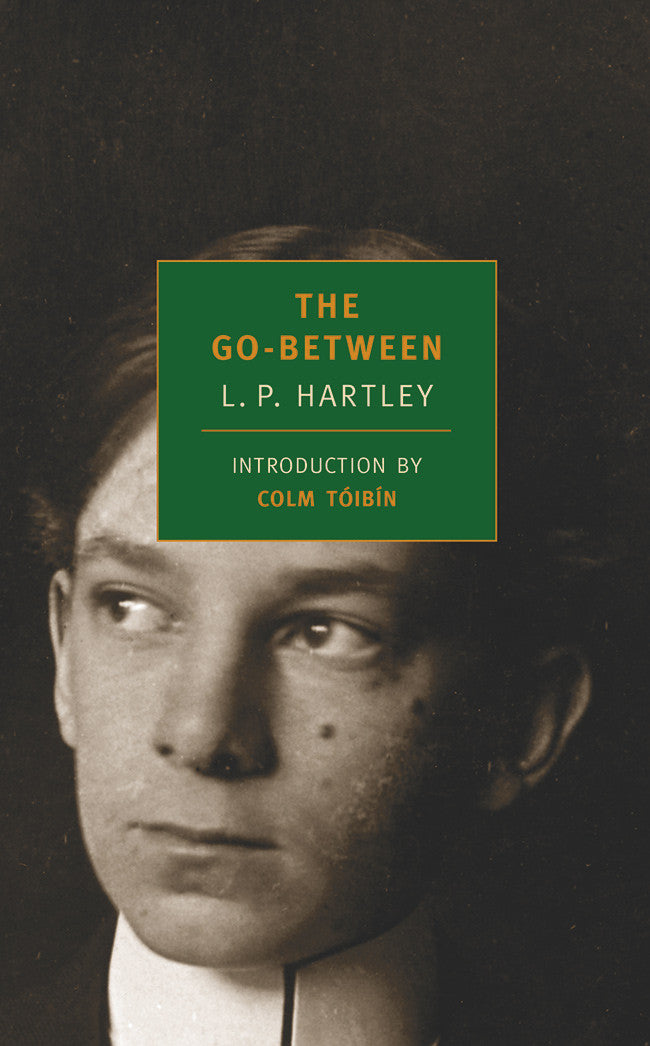Until I came to Brandham hall the world of my imagination had been peopled by fictitious beings wo behaved as I wanted them to behave; at Brandham Hall it was inhabited by real people who had the freedom of both worlds; in the flesh they could give my imagination what it needed, and in my solitary musings I endowed them with certain magical qualities but did not otherwise idealize them. I did not need to. Marian was many things to me besides Maid Marian of the greenwood. She was a fairy princess who had taken a fancy to a little boy, clothed him, petted him, turned him from a laughing-stock in to an accepted member of her society, form an ugly duckling into a swan.
At Brandham Hall, thirteen-year-old Leo Colston is out of his element. Recruited for the summer by a friend from school, he finds himself at sea among the upper classes. The temperatures climb, but he has only his one suit, and it's only when his friend's sister, Marian, has the grace to take him shopping for summer clothing that he finally finds himself at ease. His new cool green suit is symbolic of his difference from the others at Brandham Hall, but also Marian's charity toward him, and he quickly falls for her in the half-romantic, half-admiring way that young men fall for adult women. When Marian asks him to take a message to Ted Burgess, a local farmer, he jumps to be of service, but only later does he discover that these messages are ones of love, and he's become embroiled in an illicit love affair between the two.
One thing that interested me about The Go-Between is how deftly it manages the envy that emerges from the class divide. By all rights, Leo should be sympathetic toward the farmer, Ted, who is closer to his own class, and who treats Leo, all-in-all, with a kind of fatherly affection. But Leo finds himself gravitating more strongly toward Lord Trimingham, a nobleman, disfigured from his World War I service, who is, or plans to be, Marian's true fiance. Lord Trimingham is polite but cold, and it's not difficult to see why Marian prefers the humble Ted--so does the reader--but for Leo, Trimingham's nobility seems to emerge from the same distinctions as Marian's grace and charity. Leo is, although he doesn't realize it, and only in his heart, a kind of class traitor. The richness of The Go-Between emerges out of the ambiguous conflict within Leo's heart; he becomes increasingly suspicious of what he's been tasked to do, but not really for the right reasons, although he comes close to a flash of truth when he begins to think that both Marian and Ted have been neglectful in using him for their own ulterior purposes.
There's a comfort-food feeling to The Go-Between: stuffy, British, breezy, bucolic. It shares DNA with the classic boarding school novel, like Brideshead Revisited or A Dance to the Music of Time. I found it a little simple compared to these, a little less complex than it might have been. It felt as if it held perhaps a little too tightly to the three-part love triangle, so clean in its design--lady, lord, farmer. But I was really charmed by it, and I was pleasantly surprised by the ending, which presents at first a seemingly over-simple resolution, which it then complicates by sending the reader hurtling far forward in time to the "present" day. I didn't quite expect that, although I suppose I ought to have expected it form the novel's famous first line: "The past is a different country, they do things differently there."


No comments:
Post a Comment